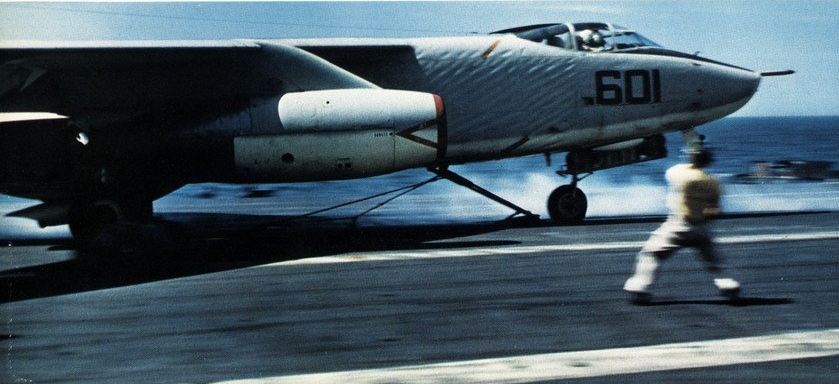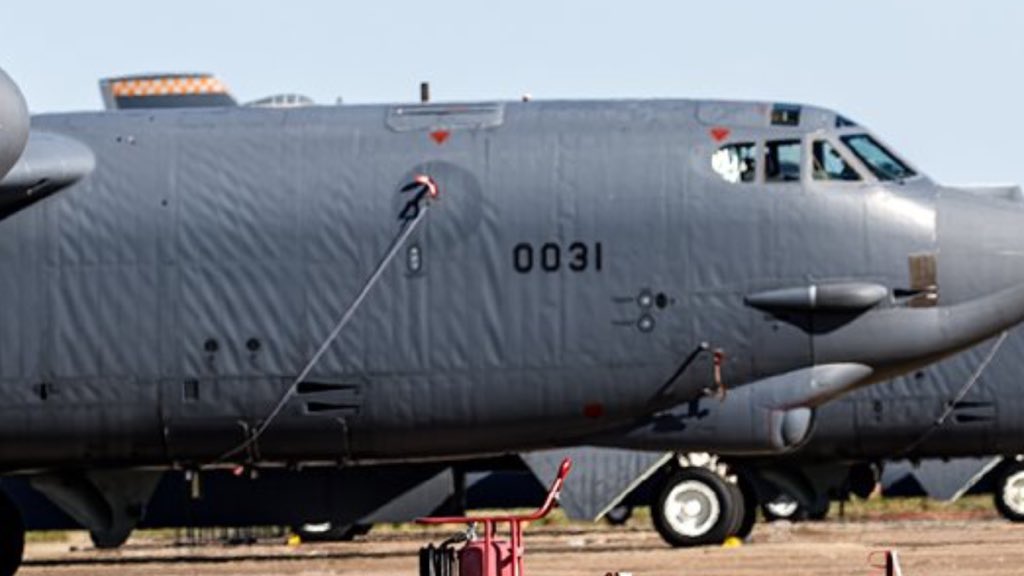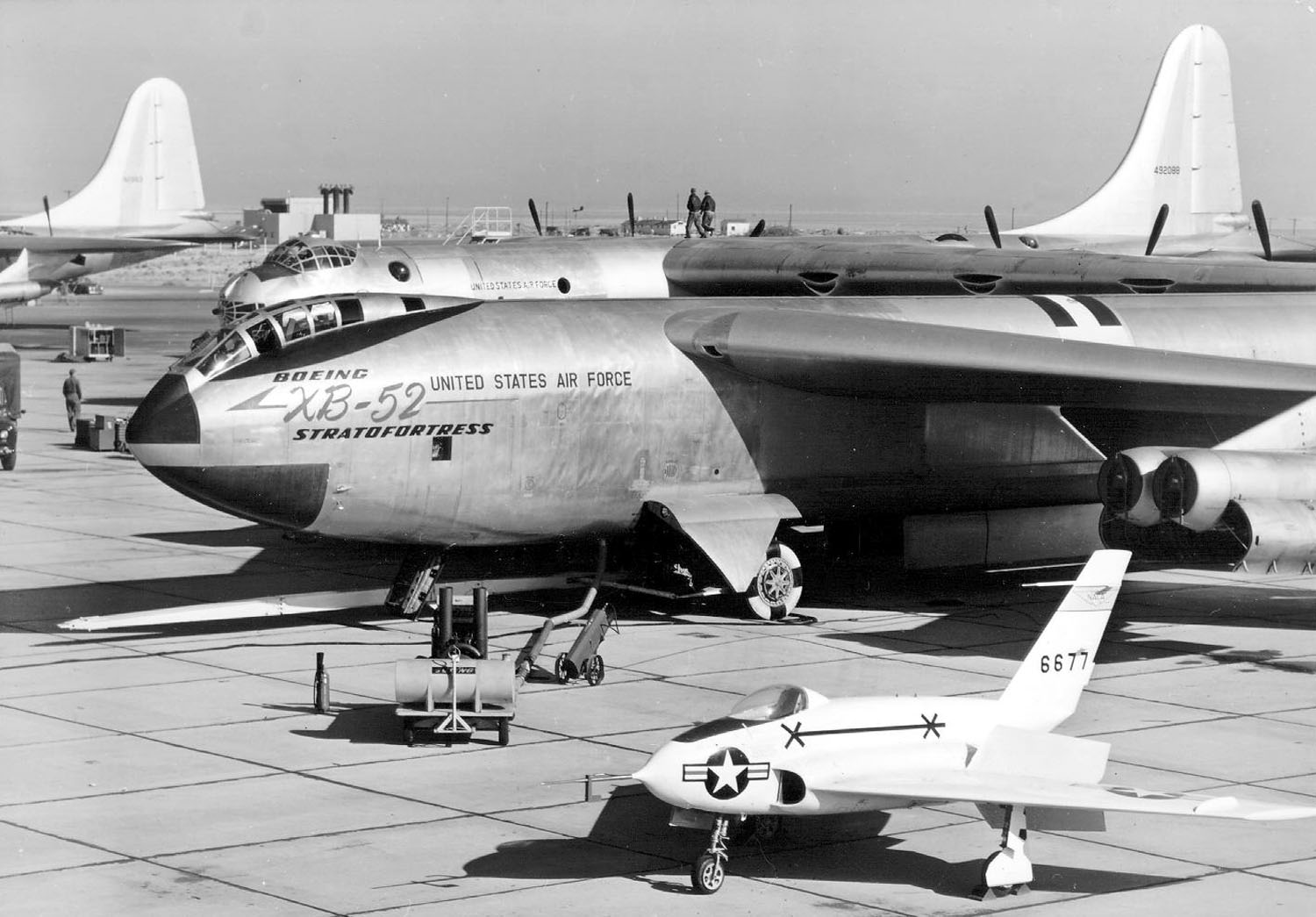P-51D Mustang stress test results c 1944 ...
Fri Feb 02, 2018 5:24 pm
Re: P-51D Mustang stress test results c 1944 ...
Sat Feb 03, 2018 12:02 am
Fascinating pictures. Thanks for sharing. Keep them coming! 
Laurent

Laurent
Re: P-51D Mustang stress test results c 1944 ...
Sat Feb 03, 2018 12:35 am
I've enjoyed viewing these photos (and others) on the NASA website/archive. Note how in these high quality photos, you can quite easily see the Alcoa aluminum watermarks on the outer surfaces of a number of the skins, just like what was authentically recreated in the restoration of "Sierra Sue II", everywhere the same took place on that particular airframe (on any panel where the watermarks were not found preserved on the interior-facing surface, it could therefore be concluded that the side with the Alcoa watermarks was facing the exterior when the aircraft was originally manufactured (eventually rubbing off over time, as has also been the case ever since the restoration was completed)).
Re: P-51D Mustang stress test results c 1944 ...
Sat Feb 03, 2018 7:10 am
Anything post-war and swept-wing Mark? 
Re: P-51D Mustang stress test results c 1944 ...
Sat Feb 03, 2018 2:50 pm
Those skin wrinkles in the first few pictures reminded me of a few airplanes that are supposed to be ready to fly.
For instance:
 A-3B_of_VAH-8_is_launched_from_USS_Constellation_(CVA-64)_1966 by tanker622001, on Flickr
A-3B_of_VAH-8_is_launched_from_USS_Constellation_(CVA-64)_1966 by tanker622001, on Flickr
 C_7QYzlVYAIjdXe by tanker622001, on Flickr
C_7QYzlVYAIjdXe by tanker622001, on Flickr
 XB-52, X-4 & B-36 by tanker622001, on Flickr
XB-52, X-4 & B-36 by tanker622001, on Flickr
As for photo credits, these were in Google Images and show as Public Domain on Flickr
For instance:
 A-3B_of_VAH-8_is_launched_from_USS_Constellation_(CVA-64)_1966 by tanker622001, on Flickr
A-3B_of_VAH-8_is_launched_from_USS_Constellation_(CVA-64)_1966 by tanker622001, on Flickr C_7QYzlVYAIjdXe by tanker622001, on Flickr
C_7QYzlVYAIjdXe by tanker622001, on Flickr XB-52, X-4 & B-36 by tanker622001, on Flickr
XB-52, X-4 & B-36 by tanker622001, on FlickrAs for photo credits, these were in Google Images and show as Public Domain on Flickr
Re: P-51D Mustang stress test results c 1944 ...
Sun Feb 04, 2018 12:09 pm
Larry, that's just those ol' girls showing their age! 
Let's call it a sign of wisdom
Andy
Let's call it a sign of wisdom
Andy
Re: P-51D Mustang stress test results c 1944 ...
Sun Feb 04, 2018 1:07 pm
Boy, about a hunert of them large lead bars would make waiting for the VA more tolerable...  Interesting group of shots!
Interesting group of shots!
 Interesting group of shots!
Interesting group of shots!
Re: P-51D Mustang stress test results c 1944 ...
Mon Feb 05, 2018 10:57 am
It is interesting - not to bring up a tender subject but these same stresses were quite visible in the "Galloping Ghost." I always assumed it was due to a reduction in structure when the radiator & scoop was removed but thinking about it now, NA's "dive test loads" were probably pretty similar to what the Ghost was seeing on the course. I'd still think that there is some structural reduction in the Ghost as the same signs don't show up on the other "super 'stangs." Engineering and aerodynamics is an interesting thing. Of course, thanks for sharing Mark!

(sorry, photo credit unknown)

(sorry, photo credit unknown)
Re: P-51D Mustang stress test results c 1944 ...
Mon Feb 05, 2018 11:31 am
TheBoy wrote:...these same stresses were quite visible in the "Galloping Ghost." I always assumed it was due to a reduction in structure when the radiator & scoop was removed but thinking about it now, NA's "dive test loads" were probably pretty similar to what the Ghost was seeing on the course. I'd still think that there is some structural reduction in the Ghost as the same signs don't show up on the other "super 'stangs." Engineering and aerodynamics is an interesting thing.
This was the first thing I thought of when I saw the photos too.
I suspect the fuselage radiator hole missing on that aircraft actually made the fuselage stronger, rather than weaker. The lower longerons may have been more securely tied together in the Ghost configuration.
Note that at "100% design load" (limit load) all those wrinkles should go away with no permanent deformation once the load is removed.
I like the ammo door load test. Imagine seeing that when pulling out of a dive! No wonder they were strengthened- that is only at 2/3 of design load!
Re: P-51D Mustang stress test results c 1944 ...
Tue Feb 06, 2018 11:06 am
TheBoy wrote:It is interesting - not to bring up a tender subject but these same stresses were quite visible in the "Galloping Ghost." I always assumed it was due to a reduction in structure when the radiator & scoop was removed but thinking about it now, NA's "dive test loads" were probably pretty similar to what the Ghost was seeing on the course. I'd still think that there is some structural reduction in the Ghost as the same signs don't show up on the other "super 'stangs." Engineering and aerodynamics is an interesting thing.
If you see wrinkles during the static test you see the wrinkles going from front to end.
In my opinion a very well balanced airframe design were right skin thicknesses were applied were needed.
Now on the Ghost you only see one panel wrinkling and not in a nice way. The rest of the fuselage don't show any wrinkles.























